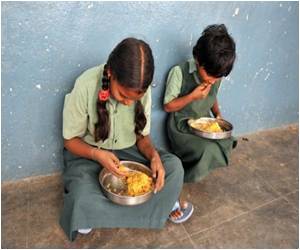Within 15 years about 450 million children will be physically and mentally stunted if the world neglects action to tackle malnutrition, warned a report from Save the Children .

The problem has become urgent due to volatile food prices, economic uncertainty, climate change and demographic shifts.
In Asia, for example, where 100 million children are stunted, the report predicts that climatic changes to food yields will result in seven million more stunted children by 2050.
"The world has made dramatic progress in reducing child deaths, down from 12 to 7.6 million, but this momentum will stall if we fail to tackle malnutrition," said the charity's chief executive, Justin Forsyth.
He urged the British government to lead a push to reduce malnutrition with a world hunger summit later this year, taking advantage of the presence of many world leaders in London for the 2012 Olympic Games in July and August.
"Every hour of every day, 300 children die because of malnutrition, often simply because they don't have access to the basic, nutritious foods that we take for granted in rich countries," Forsyth said.
Save the Children said there were some straightforward remedies, including fortifying foods with vitamins and minerals and promoting breastfeeding.
"We don't eat anything else -- I might get egg or meat once a year for special occasions. There isn't enough, but my parents give me whatever is available," she said.
A child's body adapts to the long-term lack of nutrients by giving priority to the needs of vital organs and functions rather than to physical or cognitive growth -- and the damage is largely irreversible.
Malnourished children are more susceptible to disease and the report estimates that in countries where the problem is worst, malnutrition is the underlying cause for a majority of deaths by diarrhoea, malaria and pneumonia.
The economic impact is also significant, with adults who were malnourished as children predicted to earn at least 20 percent less than the average.
In countries where half the world's malnourished children live, one in six parents also said that their children were skipping school to work for food.
Source-AFP
 MEDINDIA
MEDINDIA




 Email
Email





